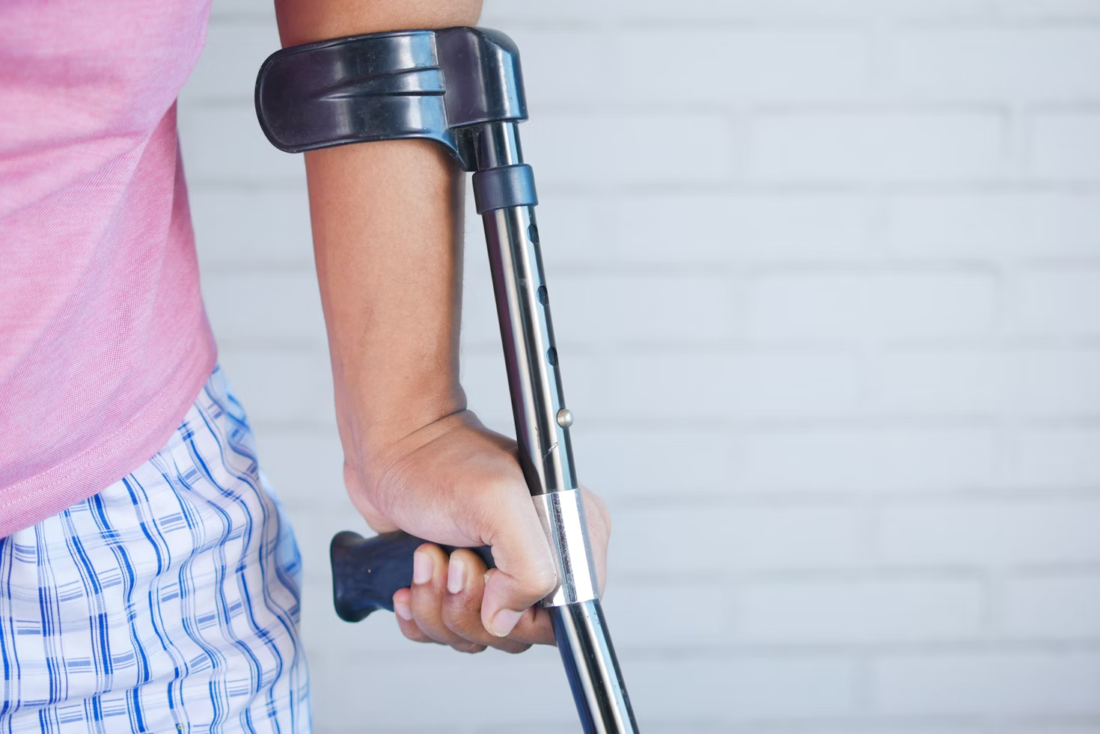
Image source: https://unsplash.com/photos/a-person-holding-a-crutch-and-walking-cane-B3PxVCnbsSI
Exploring new countries is sure to be an adventure, but what happens when that adventure takes an unexpected turn due to an injury? Suddenly, you’re thrust into unfamiliar medical systems, dealing with insurance paperwork, and possibly even legal issues.
In this article, we’ll guide you through the essential steps to effectively manage the situation if you find yourself injured while abroad.
Seek Medical Attention and Inform Someone
If you’re injured abroad, your first step is always to seek medical attention. Prioritize your health above all else. Don’t hesitate to contact local emergency services or head to the nearest clinic or hospital.
Carry a translated list of key medical terms if you’re in a country where you don’t speak the language; this can be crucial when communicating your symptoms.
Meanwhile, ensure that someone – whether a travel companion or a responsible family member back home – is informed about the incident. This person can assist with necessary communications or decision-making while you focus on treatment.
Always keep essential contacts handy: the local embassy, close relatives, and travel insurance providers should top this list.
Document Everything
If you are able to, document everything related to the injury. Use your smartphone or a notebook to detail the incident’s circumstances, including dates, times, and potential causes. Take photographs of the injury and any relevant surroundings or hazards.
This documentation serves a dual purpose: it helps in diagnosing and treating your injury more accurately and prepares you for any insurance claims or legal actions that may follow.
Remember, thorough records can significantly streamline the process of compensation claims with your travel insurance provider.
Additionally, keep all medical reports, receipts, and correspondence safe – these will be invaluable when you’re back home.
Navigate Insurance Claims
Navigating insurance claims after an injury abroad can seem daunting, but staying informed simplifies the process.
First, notify your travel insurance company immediately after receiving initial medical care. This timely communication is crucial as some policies may have specific requirements for reporting incidents.
Provide your insurer with all gathered documentation and follow their guidance on further steps, which could include additional medical assessments or a transfer to a specialized facility.
Understanding the terms of your policy before traveling – such as coverage limits and exclusions – is invaluable.
Moreover, if language barriers make interacting with local service providers challenging, ask for assistance from embassy staffers or hire a translator. This ensures that you don’t miss critical information regarding your insurance claim.
Consider Legal Counsel (and Understand Statutes of Limitations)
When injured abroad, if the injury is due to another’s negligence or recklessness, you could pursue compensation with the help of a lawyer – just like back home. Consulting with a legal expert who understands international law can provide clarity and direction.
However, just like every state has enacted its own statutes of limitations for personal injury claims, such laws could apply in the country in which you are injured. The laws dictate how long you have to initiate legal proceedings after an incident. They vary significantly from country to country and can impact your ability to seek compensation once back home.
So, make sure you understand your rights and the deadlines for filing a personal injury lawsuit.
Deal with Both the Emotional and Physical Recovery
Recovering from an injury isn’t just a physical process – it also involves emotional recuperation. Dealing with trauma in unfamiliar surroundings can intensify feelings of vulnerability or anxiety. It’s essential to acknowledge these emotions as part of the healing journey.
Upon returning home, consider seeking support from mental health professionals if you experience persistent distress or anxiety.
Additionally, follow through with any recommended rehabilitation programs or follow-up care to address the physical aspects of your recovery.
Remember, recovery is not a race but a step-by-step process that requires patience and self-compassion. Allow yourself the time and space needed to heal both physically and emotionally.




